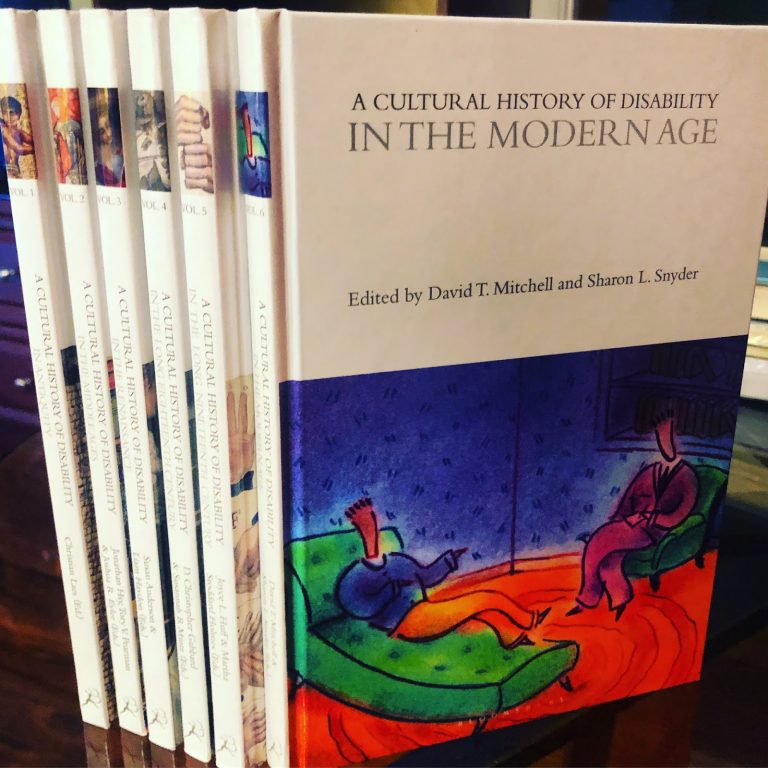Poem of the Day: William Ernest Henley’s “Invictus”

This just in from Prof. Robert McRuer, who just returned from the University of Vienna, where he presented his lecture “Defections: Globalizing Queerness and Disability” as part of a daylong event titled “Barriere-frei?! Perspektiven der Disability und Gender/Queer Studies auf die Hochschullandschaft” [Barrier-free?! Perspectives on Disability and Gender/Queer Studies in Higher Education]. Prof. Robert McRuer…

GW English will hold a celebration of the publication of A Cultural History of Disability in 2021. This will most likely be an online event as our 2020 celebration was postponed due to the pandemic. We will announce the details of this event in early 2021, but in the meantime: the six volumes are open access…
Following on the heels of GW President Steve Knapp and Folger Shakespeare Library director Michael Witmore who advocated for funding for the NEH at a congressional hearing, Alexa Alice Joubin recently testified in front of Congress on behalf of the humanities on May 16, 2013. The event on Capitol Hill was…

Wild Geese You do not have to be good. You do not have to walk on your knees for a hundred miles through the desert repenting. You only have to let the soft animal of your body love what it loves. Tell me about despair, yours, and I will tell you mine. Meanwhile the world…

As a little girl, the first poems I heard were from the fresh pages of the Shel Silverstein book Every Thing on It that my mom read to me by my bedside. What kept me reading Silverstein’s poems long after I could read them myself was that, beneath their kid-friendly language, poems like “Masks” speak…

somewhere i have never travelled,gladly beyond somewhere i have never travelled,gladly beyond any experience,your eyes have their silence: in your most frail gesture are things which enclose me, or which i cannot touch because they are too near your slightest look will easily unclose me though i have closed myself as fingers, you open always…